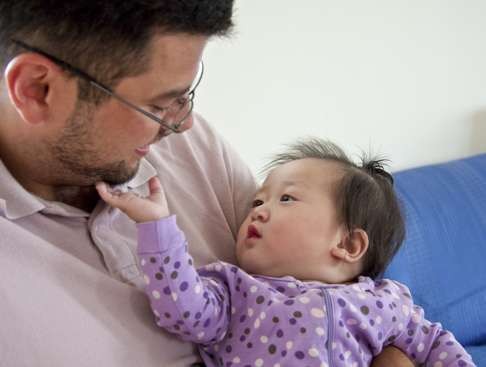
British honour recognises work of couple who’ve helped thousands of Chinese orphans
Robin Hill received an MBE this week at Buckingham Palace, 17 years after he and wife Joyce’s visit to a Chinese orphanage led them to found the New Hope Foundation to help orphaned babies with medical issues. A volunteer Hong Kong surgeon hails their role as middlemen getting help from people like him
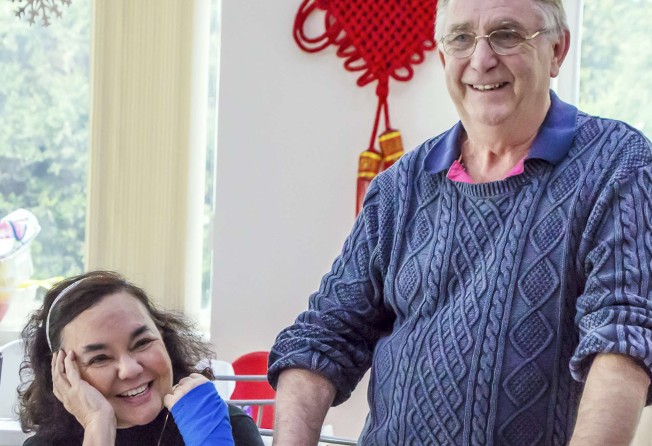
Robin Hill visited Buckingham Palace this week to receive an MBE for community service – not in Britain, but halfway around the world in China.
Hill, 67, and his wife Joyce, 66, the founders of New Hope Foundation, have worked tirelessly since 1999 to help orphaned Chinese babies with medical issues so they have a better chance of being adopted. Some are given hospice care.
Speaking from Beijing before the investiture, Hill was excited about visiting the palace, although he had been looking forward to doing some sailing during his three-week holiday in Britain.

Hill was working for Swedish engineering company Sandvik in 1998, the year he turned 50, and was restless. “I asked God if there was more to life than selling tungsten carbide and balance sheets,” he says. “We were living an expat life in China and were about to leave, but our plans were sort of hijacked by God,” he adds with a laugh.
It was a trip with other expatriates to an orphanage that changed the course of their lives. “When we walked into the room we could see there were two to three babies in a bed; it was a filthy, dirty, horrible environment. It just broke our hearts,” Hill recalls.
After the visit, Joyce persuaded her husband that God wanted them to stay in the country, and trust that everything would work out.
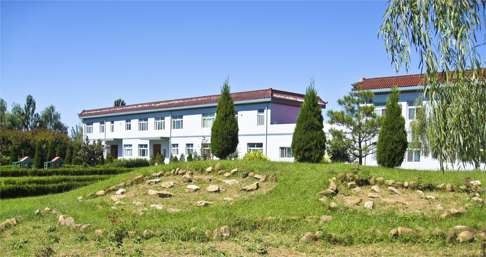
The couple already had six children from previous marriages, and one child together. But they felt they had the compassion and energy to help more children.
“We both cried and realised this was an opportunity for us to do something about it. We both felt strongly about it,” he recalls.
So with a leap of faith and a small flat, the couple established the New Hope Foundation, and now have 300 babies under their care in six centres in Beijing and Henan province. Over the years they have come to the aid of more than 2,500 babies, many of whom have been adopted.
A number of people have come forward with much needed help to keep New Hope going, including retired executive coach Toby Littlewood and his wife, Jing. In 2002, they were selling a home in Shunyi, a suburb in Beijing, when the Hills called Littlewood to see if it was still available.
“My wife was literally at the lawyer’s office to sign the papers when the Hills called us, and asked if the place was available,” Littlewood recalls. “I immediately called my wife to see if the place was sold yet and she said no, so I said we need it back.” The Littlewoods let them use the house rent free.
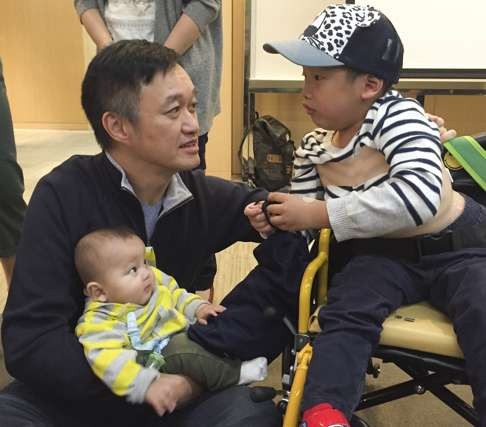
As the number of babies under their care grew, they were given use of an unfinished school building, and completed the construction using donated building materials. They were also helped by a friend who gave the Hills a shell company, so they could register their organisation to receive donations.
Many of the babies the Hills care for are orphaned because of physical defects, having parents without the financial means to look after them. They are usually sent to an orphanage or child welfare institute (CWI) under supervision of the Civil Affairs Bureau, but these institutes lack the means to tend to these special cases. When the CWIs heard about the Hills, they began asking them for help.
Joyce Hill’s background as a medical doctor made it easier to assess the orphans’ conditions and determine the treatment they required.
Many have cleft palates, and are undernourished because they have difficulty feeding. Other medical problems include club feet and spina bifida – a painful condition where the spine is exposed. There are also extreme cases of exstrophy, where the bladder is exposed outside the body.
Hongkongers have also played a role in New Hope Foundation’s success. Dr John Ngan, a US-trained urologist, contacted Joyce to offer his services.
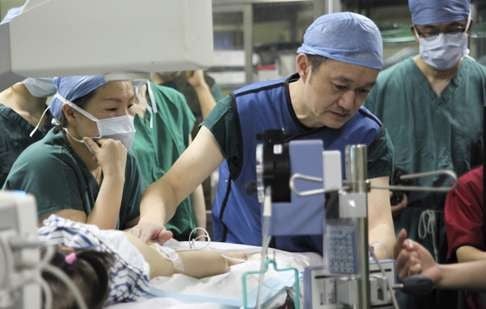
“In 2005 I went to Beijing to meet them and saw one of her babies who had spina bifida, and we needed to treat the kid right away,” Ngan recalls. “We sent the kid to Suzhou Children’s Hospital and did emergency surgery. He can ski now. I think he’s in Stockholm.”
Ngan and more than 20 other medical specialists have established volunteer organisation MedArt. They offer their time and expertise at the Suzhou hospital on long weekends, two to three times a year, to conduct operations on babies with medical conditions, many of them from New Hope.
“Without an organisation like the New Hope Foundation, we wouldn’t be able to do so much. They are the middle person, helping the babies, spending time and money on them. Thanks to Joyce they can communicate with medical terms, which makes it easier for us to know what the babies’ medical conditions are.
“Other NGOs don’t have [Joyce Hill’s] medical background, so it’s harder for us to receive the children,” Ngan adds.
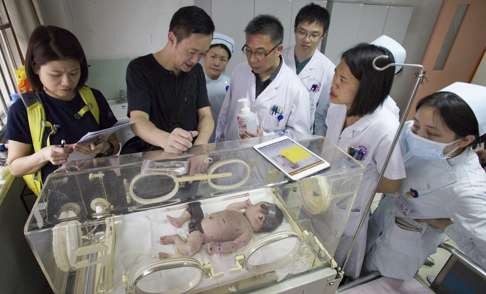
The Hills don’t draw a salary from the charity, and hardly organise fundraising activities themselves, depending on others to come through with funding. “There are people who believe in what we do, and we kind of do a fundraiser in that we send out a newsletter and tell people what we need, and it comes through,” Hill says.
While CWIs provide much of New Hope’s rent-free space and utilities, food, medical care, staff and medicine are paid for through donations, either financial or from pharmaceutical companies.
A massive donation came from Grammy award-winning American gospel singer and songwriter Steven Curtis Chapman and his wife Mary Beth, through their Show Hope Foundation. This helped fund a six-storey multi-purpose building in Luoyang, Henan province, for emergency and long-term care, and a hospice, and four other special care units in Henan.
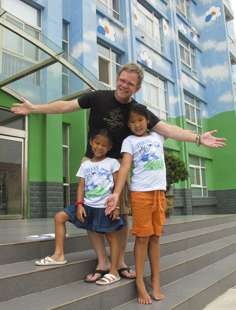
Although the Show Hope Foundation has funded the operating costs of the Luoyang building since 2009, Hill says there have been difficulties securing enough donations to keep the operations going.
Nevertheless, the Chow Tai Fook Charity Foundation came through with a HK$5 million donation and Hill is happy that friends in Hong Kong have also dug deep to help out.
“If we can find a few more major donors willing to make a three- to five-year commitment, then we can keep going,” says Hill. “It’s hard to cut staff because once we get more funding then we have to retrain. Operations can run into the millions of US dollars a year.
“We have made an impact and there are changes in CWIs. The government is giving them more money and equipment so there are changes within the system. When we started it was almost impossible for us to get government approval.”
Hill says even before they were officially registered with the Civil Affairs Bureau, New Hope had not faced many problems as a foreign organisation looking after Chinese babies.
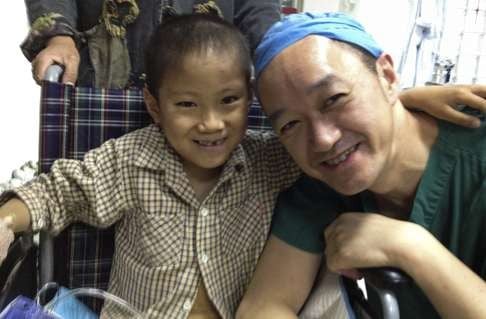
He recalls that just before the 2008 Beijing Olympics, they were visited by officers from the Public Security Bureau, who questioned the legality of New Hope’s operations. “They came around and said, ‘you can’t do this’, ‘you can’t do that’. But after they saw the children and what we were doing for them, in the end the boss was offering to come and volunteer to cook in the kitchen.”
Three years ago, Joyce suffered a brain haemorrhage and needed to be fitted with a shunt. Although it stopped the headaches, Hill says she has problems with her memory and can no longer practice medicine.
She remains actively involved in New Hope in other ways, but another doctor, Steve Martin, has taken over.
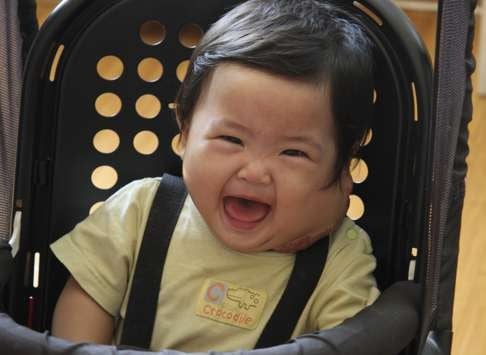
With the Hills in their mid to late 60s, how much longer can they keep going? Robin says New Hope is in good hands, as seen when Joyce was in the hospital for four months and Hill pretty much dropped everything to care for her.
“We have a good set of local staff who have the same heart … we could step out tomorrow, but I want to stay, and Joyce is quite happy to stay in Beijing,” he says.
From day one, the Hills have welcomed visitors to New Hope in Beijing. Many are impressed by how they have set up the place, with each child having his or her own toiletries that are clearly marked and colour coordinated.
While the systems Joyce has set up have been emulated in some some CWIs, raising the bar in terms of the quality of care and facilities for orphans, most importantly the Hills treat each child as if they were their own.
“[The Hills] are living by their faith and trust God for resources,” says Littlewood, who has known the couple since 1995. “We’re proud to be associated with this. They are my heroes. They’ve been on a great journey and will probably continue for a while. They can’t fix the whole of China, but they can make a difference to one child.”
For more information, go to www.hopefosterhome.com